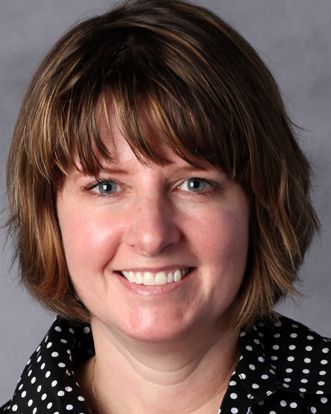Lori Lamkin: Microsoft Women Worth Watching

In the 25-plus years I've written about technology, I've interviewed fewer than 50 female Microsoft employees (by my rough estimate). In part, this is because there are less of them. Microsoft officials say women comprise 25 percent of the company's total workforce. It's also because many of the women who do work at Microsoft are in marketing, sales and support roles and aren't among those who are "authorized" to talk to us press/blogger types.
There are a handful of women employees dotting Microsoft's executive ranks, including two Senior Vice Presidents (Lisa Brummel,head of Human Resources, and Mich Matthews, head of the Central Marketing Group). But I wanted to meet some of the less-public techies -- the engineers, product managers and programmers who work at Microsoft to find out how and why they've managed to buck the continuing trend of women not entering math/science careers. The women I've interviewed for this series have joined Microsoft via a wide variety of paths. Some knew since they were kids they wanted to be involved in technology. Others came to the Empire via a more circuitous route (master of fine arts in poetry, anyone?). Some are Microsoft lifers. Others are recent hires.
On March 24, Ada Lovelace Day -- which is dedicated to celebrating the achievements of women in science and technology -- I kicked off a new series profiling some of these Microsoft women worth watching. Over the next couple of weeks, I'll be running profiles of ten of them on my blog.

Title: Product Unit Manager, Team Foundation Server
What’s Your Typical Day Like? "From 9 to 5, I'm in meetings," Lamkin says. She does different check-ins with her team, depending where they are in the product cycle. THey could be planning the next version of the product, working on a service pack or focusing on other deliverables. She also does a lot of customer briefings and events in blocks. Lamkin currently has 70 people reporting to her across the dev, test and product management spectrum.
Did you always want to be involved in technology? If not, what steered you this way? Lamkin says she enjoyed math and science from an early age and knew "she wanted to go out and make an impact." In high school, she already knew she had a passion for computers. She started out her University of Washington college career focused on becoming an electrical engineer, but ended up enjoying computer science more, so decided to major in math and minor in computer science. In college, she worked at Seattle City Light on a project to forecast power consumption.
Advice for women (and/or men) considering a career in technology? "Take a job as close to the industry as possible. Don't be afraid to be the recceptionist or the mail carrier, if it means you can get close to it," she advises. "I see lots of people who are doing things they didn't want to do in their careers." But if you are competent, no matter what level you're at, you'll get noticed and get more projects.
Favorite gadget (just one) or technology: "I have an iPhone," Lamkin admits, and uses it "to delete lots of email while walking from my car to my office every morning." But she says it's her Tivo that is her Gadget No. 1.
Microsoft's Visual Studio Team Foundation Server (TFS) is a collaboration tool for developers, and Lori Lamkin, one of the leading forces behind it, is a collaborator.
Lamkin applied to Microsoft right after graduating from UW and joined the company in 1990. While some women getting into the tech field seem to gravitate toward doing documentation and taking a less developer-focused career path, Lamkin says, she was into writing code in college and always saw herself doing "the tech thing," she says.
Lamkin started out doing product support for Fortran and C, but within a year, she was managing a team in Product Support Services for those products. After four years in PSS, she became a program manager for C++ and C#. Then she left to have and raise twin boys.
It was while she was on maternity leave that she thought about what she really wanted to do.
"I was very focused" up to that point in her Microsoft career, "but not necessarily about the best place where I could have the most impact."
She said her leave gave her a chance to think about making a change. She realized she had "lots of passion for the developer as customer." So she decided to stay in the developer division when she returned to Microsoft three years ago, but as the Group Program Manager for Team Foundation Server.
TFS includes project-tracking, source-control, data-collection and reporting elements. Microsoft just shipped a new version of TFS this week, as part of the Visual Studio 2010 family.
The "father" of TFS is Technical Fellow Brian Harry. Harry manages the part of the TFS team based in North Carolina, and Lamkin manages the part of the team based in Redmond, Wash.
"I love the product I am working on. I love bringing teams together to ship software," Lamkin says.
She also is more into leading and mentoring than working as an individual contributor.
"I want to be a leader. I can look at a bunch of ambiguous ideas that can help customers and make us some money" and turn them into something useful, Lamkin says. She says she also makes sure to "get out of the way of my great people and to help great people succeed."
Getting software developers to collaborate is an exciting challenge for Lamkin.
"I want to make TFS something (developers) can't live without," she says.
(Check out all the Microsoft Women Worth Watching profiles here.)